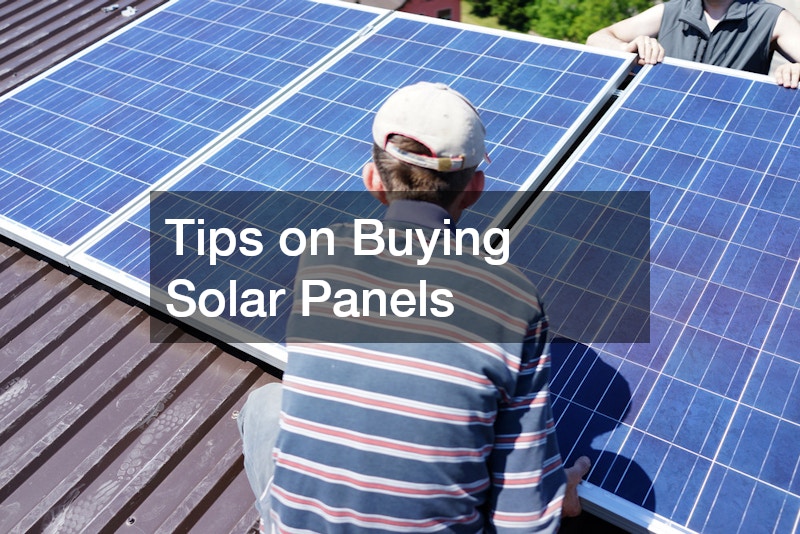Solar panels are an excellent investment for homeowners and businesses alike, offering a sustainable way to reduce electricity costs and minimize environmental impact. As the demand for solar energy increases, so does the interest in understanding how to purchase the best solar panels for individual needs. This article provides valuable tips to guide you through the buying process.
1. What Factors Should I Consider When Choosing Solar Panels?
1.1 Panel Efficiency
Panel efficiency is a key determinant of how much energy a solar panel can generate from sunlight. High-efficiency panels can produce more electricity within a limited space, making them ideal for properties with space constraints.
As technology advances, many manufacturers are offering panels with efficiency ratings over 20%, providing better energy solutions to consumers.
Choosing the right panel efficiency depends on your specific energy needs and available installation space. If your roof can accommodate less surface area, opting for more efficient panels could be advantageous. Remember that higher efficiency often comes at a cost, so balancing efficiency with budget is essential.
Efficiency impacts not only the space utilization but also the financial returns of your solar investment. More efficient panels can yield a higher energy output, translating into greater savings on your electricity bill. Understanding efficiency can help you make a more informed decision about your solar panel purchase.
1.2 Cost and Budget
Cost and budget are important considerations when purchasing solar panels. The initial investment can vary greatly depending on the type, brand, and efficiency of the panels. However, it’s vital to not compromise quality for price, as high-quality panels can offer better long-term performance and durability.
Many regions offer financing options and solar loans to help manage upfront costs. By exploring these financial aids, you can make solar energy more accessible and affordable. Keep in mind that while some options may initially cost more, they often save money in the long run through improved efficiency and lower maintenance costs.
Research is key when budgeting for solar panels. Compare different products and installation providers to ensure you’re getting the best value for your investment. It helps to estimate the cost against expected energy savings to assess the financial feasibility of installing solar panels.
1.3 Installation and Maintenance
Professional installation is crucial to ensure your solar panel system operates at maximum efficiency. Certified installers have the expertise to handle technical aspects, ensuring panels are securely mounted and connections are properly made. This reduces potential risks and maximizes the lifespan of your solar panels.
Maintenance requirements for solar panels are generally low, but regular checks can prevent minor issues from becoming major problems. Clean panels yield better energy output, so periodic cleaning is recommended, especially if you live in an area with high dust or pollen levels. Some providers offer maintenance packages, giving you peace of mind over the system’s lifespan.
Engaging with a reputable installation team also means access to ongoing support and warranty services. It’s wise to inquire about the warranties offered, as they can range from 10 to 25 years, covering any unforeseen issues with the panels or their performance. Effective maintenance and proper installation ensure that your investment in solar energy remains sound and efficient.
2. How Do I Assess the Return on Investment (ROI) for Solar Panels?
2.1 Calculating Potential Savings
Understanding potential savings is vital to evaluate the ROI of solar panels. By comparing past electricity bills with estimated energy production from the panels, you can gauge possible savings. Typically, homes can see a reduction in electricity costs by up to 50% or more with solar energy systems.
Calculating potential savings involves understanding your energy consumption patterns. Solar energy calculators available online can offer estimates tailored to your location and usage. These tools factor in variables such as local sunlight exposure and energy tariffs, providing a clearer picture of expected savings.
While upfront costs may seem substantial, the long-term savings often outweigh the initial investment. With energy prices rising, solar panels can protect you from future electricity rate increases. Comprehensive savings analysis ensures that you make a financially sound decision.
2.2 Understanding Incentives and Rebates
Government incentives and rebates significantly reduce the upfront cost of solar panel installations. These programs may vary by region, so it’s crucial to research local options and understand their eligibility requirements. The Federal Solar Tax Credit, for instance, allows homeowners to deduct a portion of their solar costs from their taxes.
Many local governments also provide rebates or performance-based incentives, encouraging the adoption of renewable energy. Participating in such programs can enhance the affordability of your solar panel system. Be sure to also explore options for net metering, which credits you for any excess energy your panels produce.
While incentives and rebates are subject to change, they play a crucial role in making solar energy a more economically viable solution. Keeping abreast of these opportunities can allow you to maximize the financial benefits of your solar investment. It’s advisable to consult with your solar panel provider to ensure you capitalize on all available incentives.
2.3 Evaluating Long-Term Value
In addition to immediate savings and incentives, solar panels offer substantial long-term value. With energy independence, you are less reliant on traditional power sources, making your energy budget more predictable. The increase in property value is another financially beneficial aspect of solar panel installation.
Investing in solar energy is also a commitment to environmental stewardship. By reducing reliance on fossil fuels, you help decrease carbon emissions, contributing positively to the planet. This sense of contributing to a sustainable future adds another layer of value to your investment.
When evaluating long-term value, it’s important to consider the longevity and warranty of the panels. A well-maintained system can last 25 years or more, providing continuous benefits over its lifespan. Opting for high-quality solar panels Phoenix residents trust with robust warranties can ensure your investment remains secure and productive.
.

